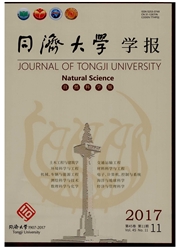

 中文摘要:
中文摘要:
采用戊二醛-牛血清蛋白(GA—BSA)交联法和聚碳酸酯膜直接固定法制备了大肠杆菌(E.coli)微生物电极,探讨了基于E.coli电极的微生物传感器在重金属和毒性有机物急性毒性分析中的应用性能.试验结果表明,采用戊二醛-牛血清蛋白交联固定法制备的E.coil微生物电极的灵敏性较差,难以满足毒性分析需要.聚碳酸酯膜直接固定法制备的E.coli微生物电极具有良好的灵敏性和稳定性,在冰箱4℃保存2个月,仍能很好地满足毒性分析需要,该固定方法具有制备简单和可实现电极的重复利用等特点,大幅降低了微生物传感器的毒性分析成本.
 英文摘要:
英文摘要:
The bovine serum albumin-glutaraldehyde cross- linking process and polycarbonate membrane immobilization process were used to prepare E. coli microbial electrodes for toxicity microbial biosensor, and their performance for heavy metals and toxic organic compounds toxicity determination was studied. The results show that the sensitivity of the E. coli microbial electrodes prepared by GA - BSA immobilization method is very poor, and is not suitable for toxicity assessment. E. coli microbial electrode prepared by polycarbonate membrane immobilization process exhibits high sensitivity and good stability for toxicity determination, and is suitable for the toxicity assessment even after 2 months' storage at 4 ℃. The polycarbonate membrane immobilization process is very simple, and the reusing of electrodes can be realized and thus the cost of toxicity determination with microbial biosensor reduces.
 同期刊论文项目
同期刊论文项目
 同项目期刊论文
同项目期刊论文
 Development of a conductometric phosphate biosensor based on tri-layer maltose phosphorylase composi
Development of a conductometric phosphate biosensor based on tri-layer maltose phosphorylase composi 期刊信息
期刊信息
